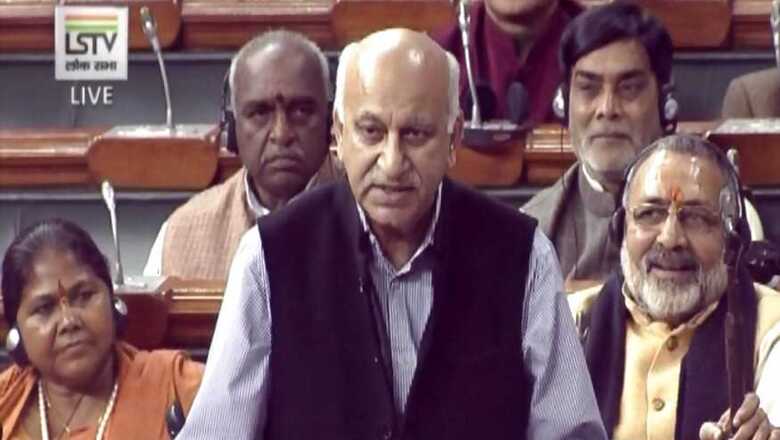
views
New Delhi: The Ministry of External Affairs on Thursday said regional grouping SAARC had failed to achieve its potential because of Pakistan’s “obstructionist approach”.
Responding to a question in the Rajya Sabha, Minister of State MJ Akbar said that the key initiatives of the South Asian Association for Regional Cooperation (SAARC) were being held back because of Pakistan.
“SAARC has been unable to achieve its potential as key initiatives, including in the important area of connectivity, are held back due to lack of response and/or obstructionist approach of Pakistan.”
“Several SAARC Member States expressed their inability to participate in the 19th SAARC Summit that was scheduled to be held in November 2016 in Pakistan due to concerns arising from increasing cross border terrorist attacks in the region and growing interference in the internal affairs of member states by that country,” Akbar said.
He added that India remains steadfast in its commitment to regional cooperation, connectivity and contacts but believes that these can only go forward in an atmosphere “free of terror”.
The minister further said that under this scenario of obstruction, initiatives to enhance connectivity in the region have been pushed to sub-regional level, for instance in concluding the BBIN Motor Vehicle Agreement.
“In initiatives such as India’s offer of a satellite for SAARC region, where Pakistan conveyed that it would not be joining, the project has moved forward with participation from other SAARC member states. It is important that substantive progress in key initiatives is made to meet people's expectations,” Akbar said.
His statement came a day after reports said that India had excluded Pakistan from the SAARC countries with which it will coordinate on National Knowledge Network, a multi-gigabit network that will help in providing a high speed network for educational institutions in India.
India had, over two years ago, said that it was extending the NKN to SAARC countries to enable students across the region to access digital libraries and networking sources.



















Comments
0 comment